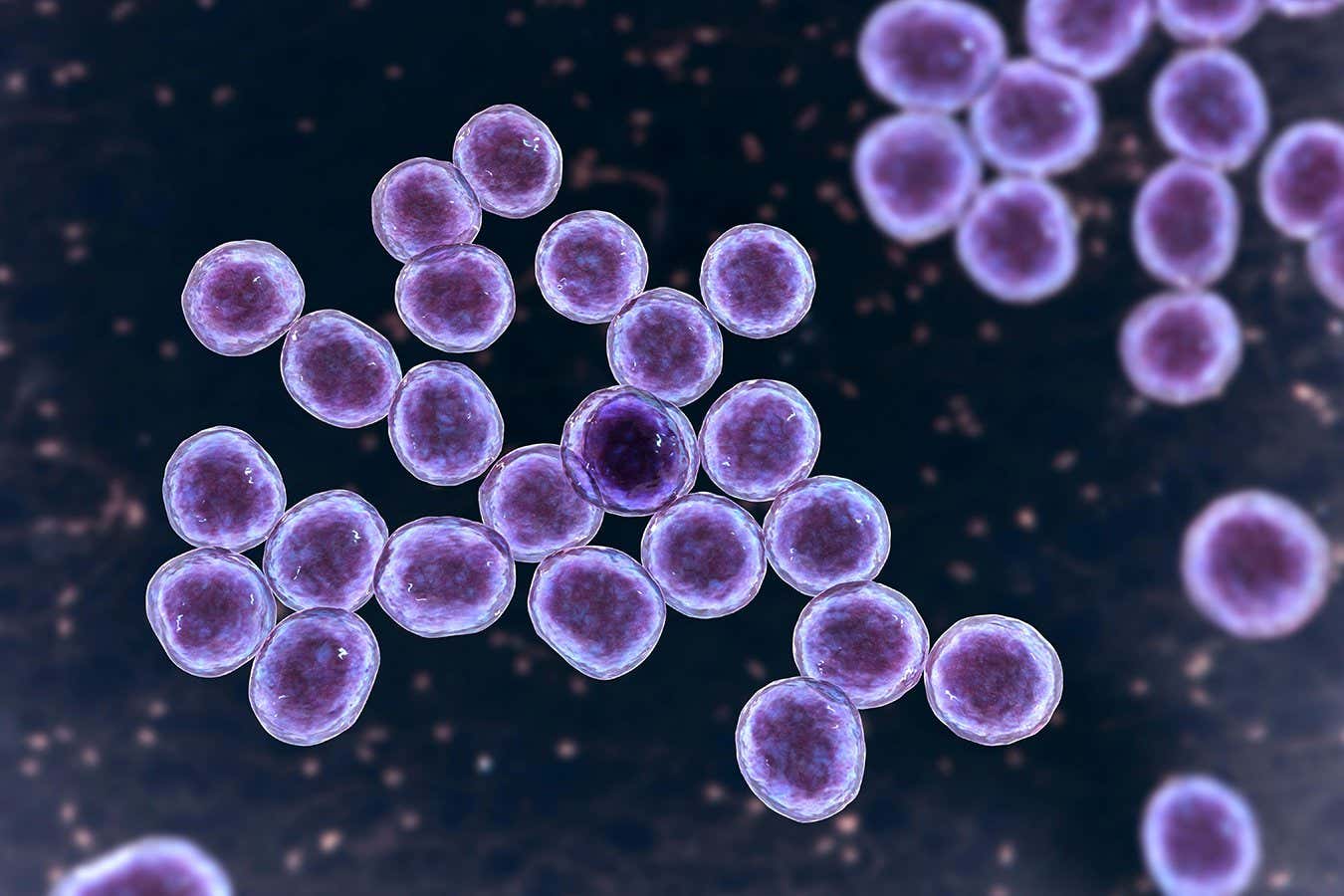Genetic mutations to an antibody prevented MRSA infections in mice, and boosted the effectiveness of antibiotics for fighting the infection
By Grace Wade
3 May 2023
Illustration of MRSA bacteria
Science Photo Library/Alamy
An antibody therapy could treat infections caused by a dangerous strain of bacteria that most antibiotics can’t kill. While the treatment hasn’t been tested in humans yet, it is effective in mice.
Methicillin-resistant Staphylococcus aureus (MRSA) is one of the deadliest bacteria. It killed more than 100,000 people worldwide in 2019 and has evolved to evade all but seven antibiotics.
“One of the challenges in treating [MRSA] is that the organism is very good at escaping different immune responses,” says Victor Torres at NYU Langone Health in New York. This includes the body’s deployment of proteins known as antibodies, which identify and attack pathogens.
Advertisement
Read more:
Doctors are hypnotising people before surgery to help reduce anxiety
Torres and his team developed a treatment by introducing genetic mutations to a human antibody that attacks MRSA. They engineered small proteins called centyrins onto the molecule’s surface – these prevent bacteria from drilling holes into immune cells. The engineered antibody targets 10 disease-causing mechanisms of MRSA.
To test its efficacy, the researchers gave antibody infusions to 20 mice 4 hours after they were infected with MRSA. Half the mice received infusions with the new antibody treatment while the other half received antibodies ineffective against the bacteria.
